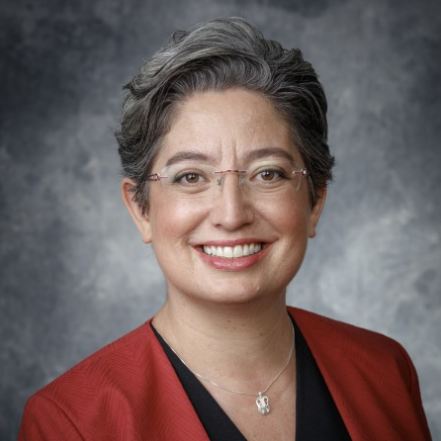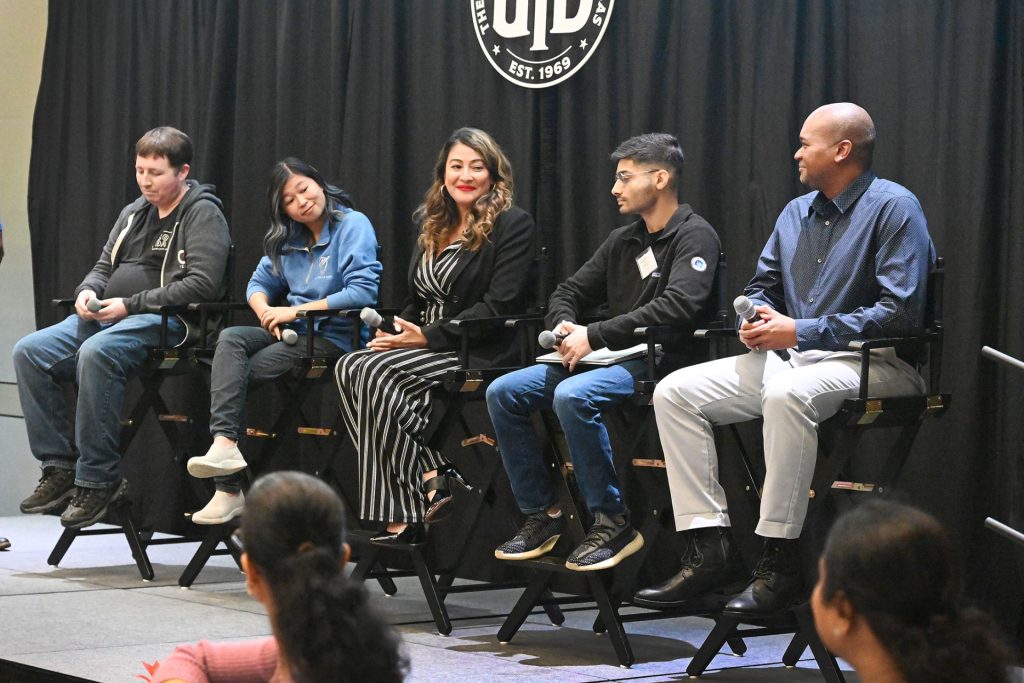Dr. Jessica C. Murphy: On the Experiences of First-Generation Students
By: Jeff Joiner | December 13, 2023

Dr. Jessica C. Murphy is the dean of undergraduate education at The University of Texas at Dallas and an associate professor of literature in the Harry W. Bass Jr. School of Arts, Humanities, and Technology. She was also the first person in her immediate family to go to college – what we today call a first-generation student. In her role as a dean, a professor and a first-generation student, Murphy is an advocate for a community of UT Dallas students who come to campus without the wealth of knowledge available from family members who went to college before them.
Murphy shared her own insights into the first-gen experience and how the University is working to serve this unique community of students and to ensure their success at UTD and beyond.
Tell me a little about yourself. Where are you from?
I’m from the Bronx in New York, from Woodlawn, which is the end of the 4 train on the subway for anyone who’s ever visited that part of the city.
Neither one of your parents graduated from college?
I know my father had started some college classes, and maybe my mother too, but neither of them completed college. My mother worked in a bank and then became the bank manager, and my dad got a job with IBM as a programmer in the days before there were computer science degrees.
How much help did your parents provide as you prepared to start college as an undergraduate student?
My parents expected me to go to college, but they didn’t know what that meant. I had to do all my own financial aid paperwork, and I did all my own applications, so I didn’t really have any help. I just did my best.
Were your parents able to help you financially?
I paid for everything as a Pell Grant recipient and through jobs. I went to Scripps College first and from there went to NYU. My mom said she could help financially, but she didn’t realize how much the bill was going to be. I mean, I didn’t either. So, one semester at NYU I had five jobs, two full-time and three part-time. I didn’t have time to go to class, but I was able to still get really good grades. I took out many loans, which I have only recently paid off.
Were you able to rely on parents for career direction?
All through my university experience the whole decision process was not a family process. I would say, “Mom, this is what I’m thinking about. What are your thoughts.” And she would say, “You need to do what’s best for you.” So, she was supportive, but not really part of the choices. And this is true for many of our first-generation students.
First-gen students, like yourself, bring certain assets to college with them – isn’t that right?
First-gen students have all these amazing assets, and my own story kind of illustrates that. There are many pieces of my first-gen experience that make me better at what I do now. I had to figure out so many things like paperwork and navigating the bureaucracy that made me a stronger person. Many of our first-generation students are the main English speakers in their household so they have the ability to interpret technical language for their families. These are things that people have not traditionally talked about as benefits in higher education, but they are important assets none the less.
What is a challenge that these students often face?
One of the biggest challenges is making sure that everyone knows that they belong here, that they’re valuable to this community and that they bring things to campus that not everyone has. We want to help students see themselves as a value added to the University community.
What is the hidden curriculum of higher education?
We have what is called a hidden curriculum in higher ed that every student has to learn, but is particularly relevant to first-gen students who can’t rely on family members who have gone to college before them. I didn’t realize you could drop a class when I was a student. No one ever told me about deadlines like the one between dropping and withdrawing from a class. These are things that you’re expected to know – like a professor’s office hours are meant for students and not times they’re not to be bothered. And what in the world is a bursar? These are just weird details about higher ed that become a language barrier and a cultural barrier that make up the hidden curriculum.
How can alumni, and particularly first-generation professionals, help first-gen students?
There’s a community of first-gen professionals that is a very specific intersectional identity and that’s an interesting piece. A lot of alumni who were first-generation students have brought to their working world their experiences from college. The stills you learn come with you to your banking job, your finance job or whatever you find yourself doing. So, I think continued relationships with our students that allow them to see the working experience from the alumni perspective is beneficial to our students. And alumni can be involved in our events like our recent First-Generation Celebration Week. Alumni can also benefit our students financially by giving to scholarships that can help students become successful professionals themselves.
Visit First-Generation Student Programs to learn more about how UT Dallas works to ensure this student population has the tools and support they need.
